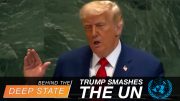
An official at the Foreign Ministry in the Kingdom of Saudi Arabia stated Wednesday that Biden administration officials pressured them and other OPEC+ nations to delay oil production cuts by a month, a move likely politically motivated to keep Americans from feeling the impact of higher energy costs until after the midterm elections.
Last week, OPEC+ nations announced their unanimous vote to cut oil production by two million barrels a day. The 13-nation oil cartel, which includes Russia, said the move was about market stabilization. The production cuts come as European sanctions levied in response to Russia’s invasion of Ukraine threaten to hurt consumers there over the winter months as well as drive up the cost of fuel in the U.S.
Biden officials reportedly urged Saudi Arabia to delay the cut until their next scheduled meeting in December. “We presented Saudi Arabia with analysis to show that there was no market basis to cut production targets, and that they could easily wait for the next OPEC meeting to see how things developed,” National Security Council spokesman John Kirby told The Wall Street Journal in a statement.
President Biden shared with CNN on Tuesday there would be “consequences” for Saudi Arabia’s production cut, but declined to elaborate on what action he is considering. Kirby added Tuesday on CNN’s “New Day,” when asked if Biden agreed with Senate Democrats who are saying it is time to freeze Saudi cooperation, “I don’t have any decisions to announce or speak to today. But I think you’ll find that the president [is] obviously disappointed by the OPEC decision and is going to be willing to work with Congress as we think about what the right relationship with Saudi Arabia needs to be going forward.”
Those comments by Biden and his administration prompted a rebuttal from the Saudis:
The Government of the Kingdom of Saudi Arabia would first like to express its total rejection of these statements that are not based on facts, and which are based on portraying the OPEC+ decision out of its purely economic context….
The Government of the Kingdom of Saudi Arabia would also like to clarify that based on its belief in the importance of dialogue and exchange of views with its allies and partners outside the OPEC + group regarding the situation in the oil markets, the Government of the Kingdom clarified through its continuous consultation with the US Administration that all economic analyses indicate that postponing the OPEC+ decision for a month, according to what has been suggested, would have had negative economic consequences.
Following the Saudi statement, Kirby remarked, “The Saudi Foreign Ministry can try to spin or deflect, but the facts are simple”: the kingdom knows the decision will “increase Russian revenues and blunt the effectiveness of sanctions” against Moscow, and that “there was no market basis to cut production targets.”
“Other OPEC nations communicated to us privately that they also disagreed with the Saudi decision, but felt coerced to support Saudi’s direction,” he said.
In light of this week’s escalated bantering between the Biden administration and the Kingdom of Saudi Arabia, Congressman Tom Tiffany (R-Wis.) on Thursday urged House Speaker Nancy Pelosi (D-Calif.) to formally investigate whether administration officials suggested Saudi Arabia delay the decision of a group of key oil-producing countries to cut oil output until after the midterms.
Tiffany sent a letter to Pelosi and tweeted, “The allegations from the @KSAmofaEN are serious, and if the Biden administration did attempt to pressure a foreign government to influence the outcome of the U.S. election, that’s something Americans deserve to know.”
In his letter, Rep. Tiffany called for an investigation and requested that the “White House release the transcript of any calls” over the last 30 days between Biden, Vice President Harris, or administration officials and the Kingdom of Saudi Arabia regarding oil production.
It seems that Tiffany does have standing with his concerns that Biden officials have been pressuring the Saudis, as the kingdom clearly states:
The Kingdom stresses that while it strives to preserve the strength of its relations with all friendly countries, it affirms its rejection of any dictates, actions, or efforts to distort its noble objectives to protect the global economy from oil market volatility. Resolving economic challenges requires the establishment of a non-politicized constructive dialogue, and to wisely and rationally consider what serves the interests of all countries.
The midterms will be long past before any investigation can see the light of day in Congress over Biden’s attempt to influence the elections. But what is truly apparent is that the Biden administration is in “all hands on deck” mode to do just about anything — legal or not — to secure as many Democratic seats as possible come November.





